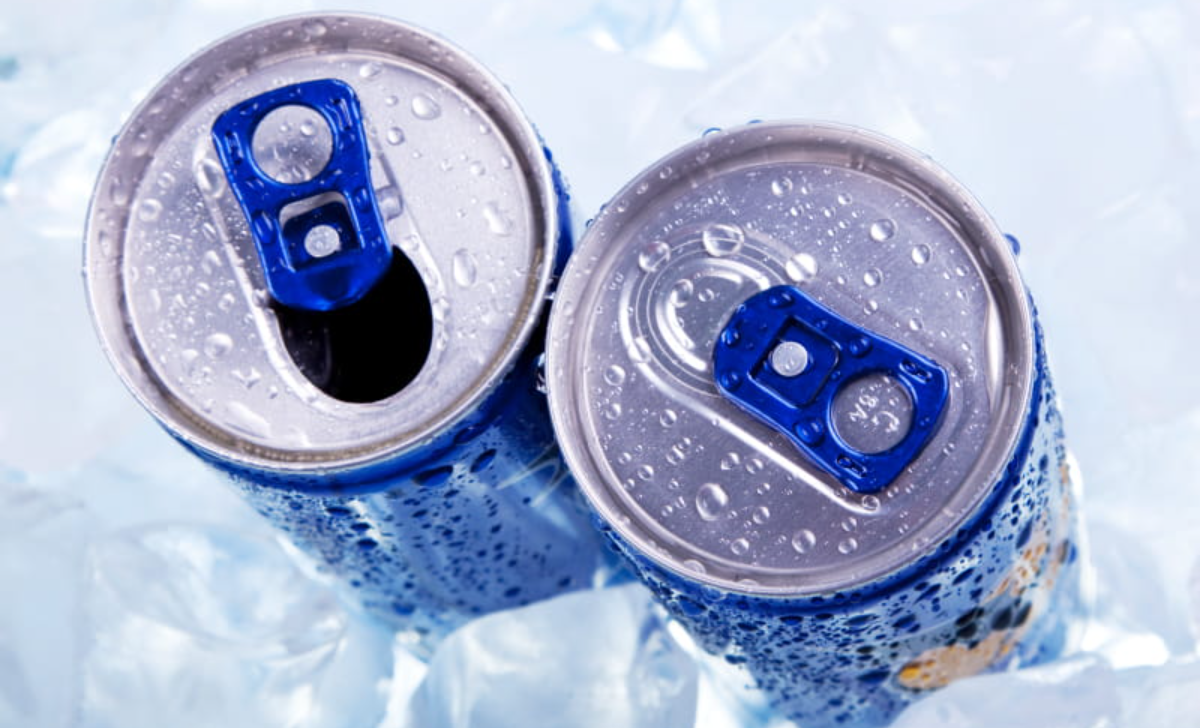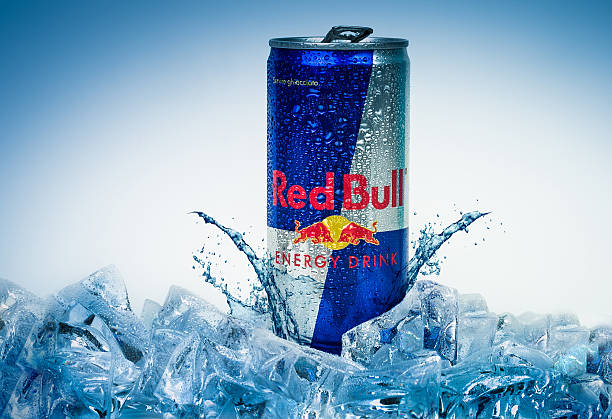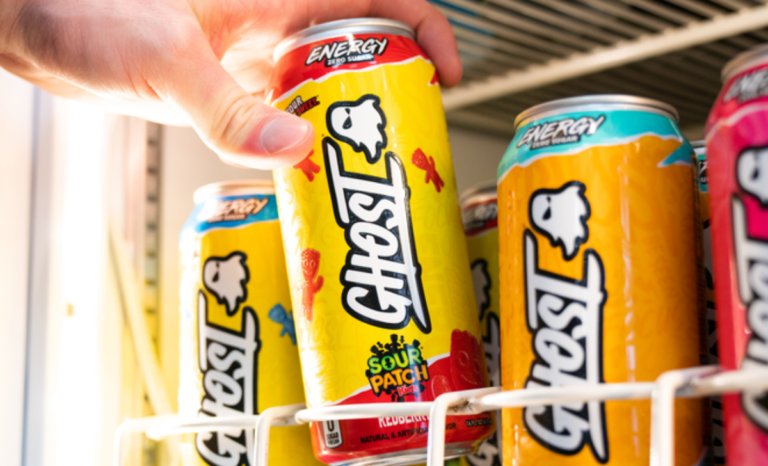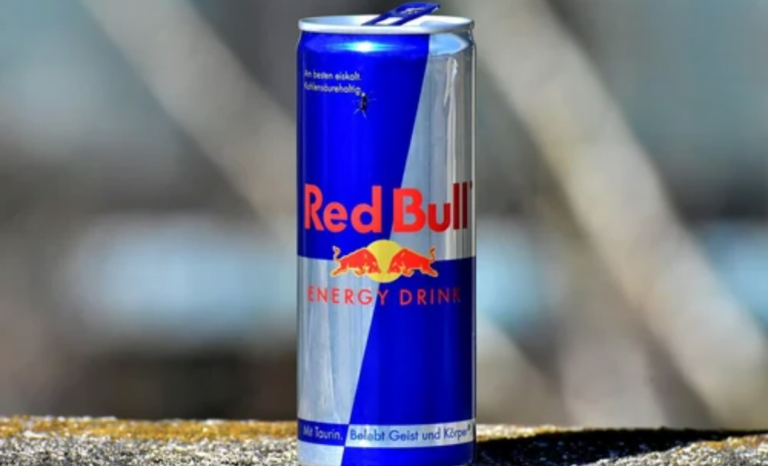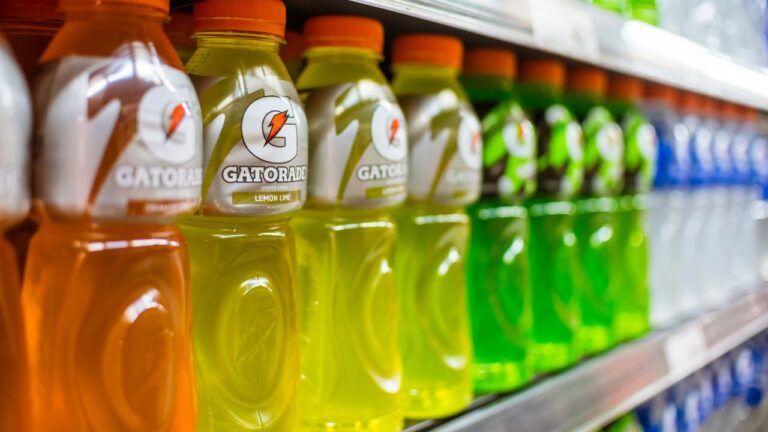The Best Fluffy Pancakes recipe you will fall in love with. Full of tips and tricks to help you make the best pancakes.
In the quest for a refreshingly chilled beverage, many have wondered about the consequences of freezing energy drinks, particularly the popular brands like Red Bull, Monster, and Prime.
The burning question on many minds: What happens if you freeze an energy drink? Will it explode, or can it handle the cold?
Freezing an energy drink, such as Red Bull or Monster, can lead to container rupture due to the liquid’s expansion. The risk of explosion arises from the altered freezing point caused by sugars and additives.
This process not only affects the drink’s texture and taste but can also compromise the safety of the container, making it advisable to avoid freezing energy drinks.
This article delves into the science behind freezing energy drinks, exploring the risks of freezing energy drinks and potential outcomes.
We will talk about freezing Red Bull, Monster, Prime, and similar beverages, examining the dangers, recommended storage practices, and the potential alterations in taste and quality.
Can You Freeze Energy Drinks?
Yes, you can freeze energy drinks without causing any significant harm to their overall composition. Freezing generally won’t alter the taste or effectiveness of the energy drink.
However, it’s crucial to note that the texture and appearance may change; ingredients like caffeine and other additives may crystallize, creating a slushy consistency.
Freezing energy drinks can be challenging due to their sugar content. The freezing point of water is 32°F (0°C), but the presence of sugar lowers the freezing point of the liquid energy drinks.
Energy drinks typically contain a significant amount of sugar, which means they have a lower freezing point than water.
While it might seem logical to assume that energy drinks can be easily frozen, the reality is that household freezers usually operate at temperatures well below the freezing point of water, but not low enough to solidify beverages with high sugar content.
The sugar acts as a natural antifreeze, preventing the liquid from solidifying even at typical freezer temperatures.
As a result, energy drinks are more likely to become slushy or develop a syrupy consistency when exposed to freezing temperatures.
Therefore, attempting to freeze energy drinks in a home freezer may not yield the desired results, and the beverage is unlikely to freeze into a solid state like water.
Why You Shouldn’t Freeze Energy Drinks
While freezing energy drinks may not pose immediate health risks, there are several reasons why it’s not advisable.
Firstly, the texture change can be unappealing, and the drink may not return to its original state once thawed.
Additionally, the risk of the can or bottle bursting due to the expansion of liquid during freezing exists, potentially creating a messy situation.
Furthermore, the formation of ice crystals may impact the beverage’s flavor and potency, compromising the intended experience.
For optimal enjoyment and safety, it’s recommended to store energy drinks in a cool but not freezing environment.
Will an Energy Drink Explode in the Freezer?
Yes, there is a risk that an energy drink can explode if placed in the freezer. When a liquid freezes, it expands, and the metal or plastic container may not be able to withstand the pressure generated. This can lead to the container rupturing or even exploding, creating a potential safety hazard.
The risk of exploding is higher if the energy drink is in a sealed container with limited room for expansion. The pressure build-up can be unpredictable, and the force of the explosion may cause sharp pieces of the container to be scattered, posing a danger to anyone in the vicinity.
So, Can an energy drink explode in the freezer? It’s a possibility, but not a guaranteed outcome. Carbon dioxide, the bubbly goodness in energy drinks, becomes less soluble as it gets colder. This means those tiny bubbles try to escape, potentially building up pressure inside the can.
If enough pressure builds up and the can’s seal can’t handle it, boom! You’ve got an exploding energy drink on your hands.
Factors Affecting the Explosion Risk of energy drink
- Sugar Content: Drinks with high sugar content, like Monster, freeze slower, leaving more liquid for the bubbles to build pressure in.
- Carbonation Level: Highly carbonated drinks like Red Bull have more fizz to potentially cause trouble.
- Can Quality: Cans with weaker seals or dents are more prone to bursting under pressure.
What Happens If You Freeze an Energy drink: Understanding Science behind Freezing
Freezing an energy drink can lead to several notable effects, influenced by the science behind freezing and the composition of the drink.
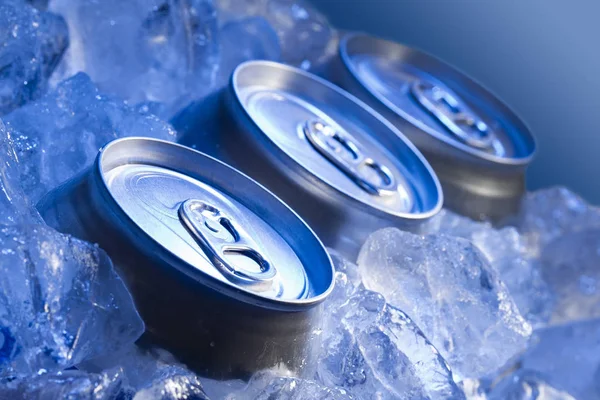
Energy drinks typically contain water, various solutes (such as sugars, caffeine, and electrolytes), flavorings, and preservatives. When subjected to freezing temperatures, the following phenomena occur:
1. Formation of Ice Crystals: As the temperature drops, water molecules in the energy drink begin to crystallize, forming ice crystals. This process can change the beverage’s texture, resulting in a slushy or partially frozen consistency.
2. Separation of Components: Different components within the energy drink may have varying freezing points. While water freezes at 0°C (32°F), solutes like sugars and electrolytes may have lower freezing points. So, Freezing point of most energy drinks is lower than 0°C or 32°F. This can lead to the separation of the drink into ice and a concentrated liquid portion.
3. Change in Taste and Texture: Freezing can affect the overall taste and texture of the energy drink. The formation of ice crystals may dilute flavors, and the separation of components can result in an uneven distribution of taste and sweetness.
4. Carbonation Issues: For carbonated energy drinks, freezing can impact carbonation levels. The freezing process may cause dissolved gases, including carbon dioxide responsible for carbonation, to escape, leading to a reduction in fizziness.
5. Container Damage: The expansion of frozen liquid can exert pressure on the container, potentially causing damage. Containers may rupture or leak when the energy drink thaws, posing safety risks and creating a mess.
6. Preservative Effect: Energy drinks often contain preservatives to extend shelf life. Freezing may affect the efficacy of these preservatives, potentially compromising the stability and safety of the beverage.
Also Read: Can You Freeze Hennessy cognac
Can you freeze Prime hydration drink?
Freezing Prime Hydration drink is not advisable due to its composition. Like many other energy and hydration drinks, Prime Hydration likely contains water, sweeteners, electrolytes, and possibly other ingredients.
The freezing point of water is 32°F (0°C), but the presence of sugars and electrolytes can lower this freezing point.
Attempting to freeze Prime Hydration may result in a slushy or syrupy consistency rather than a solid freeze. The sugars in the drink act as antifreeze, preventing it from freezing in a typical home freezer.
Should I Refrigerate Prime Hydration Drink?
Yes, refrigerating Prime Hydration is a recommended practice. Storing the drink in a cool environment helps maintain its freshness, taste, and overall quality.
Refrigeration slows down the degradation process, preserving the beverage’s intended properties. Ensure the container is tightly sealed to prevent exposure to air, which can impact carbonation and flavor.
Refrigerating Prime Hydration after opening can also extend its shelf life and enhance the drinking experience.
Read:
Can You Freeze Red Bull Energy Drink?
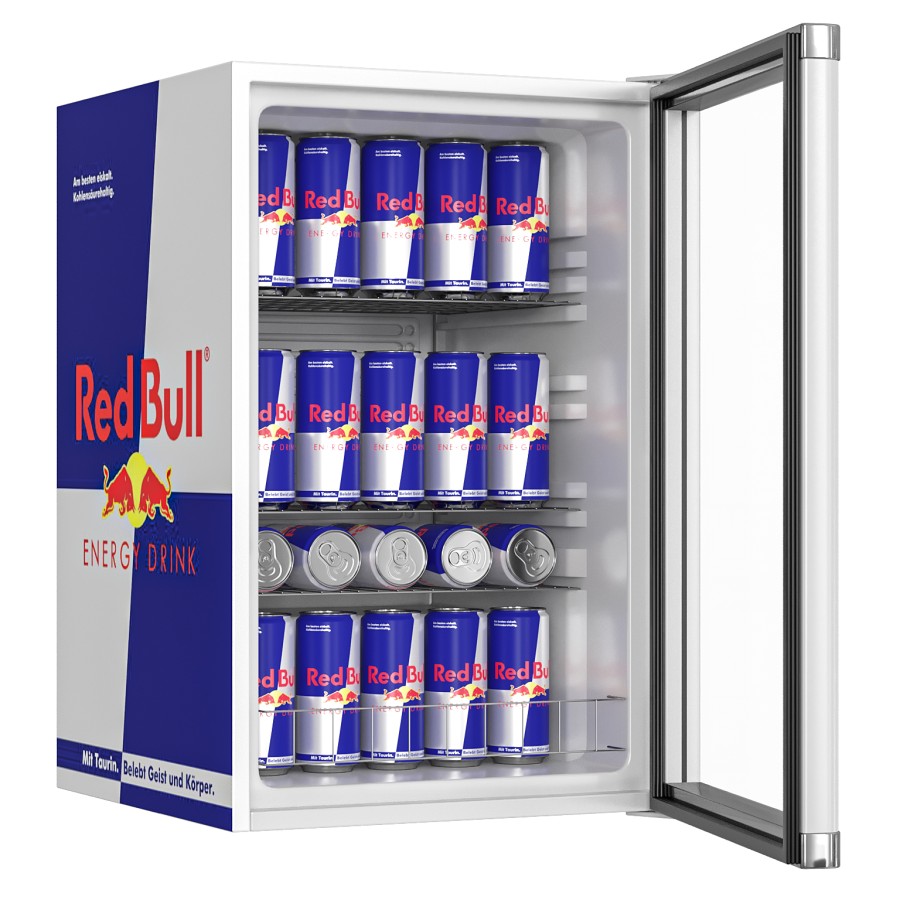
Freezing Red Bull energy drink is not recommended, as it may alter the beverage’s texture and taste. Red Bull contains water, caffeine, taurine, and sugars, among other ingredients.
The sugar content lowers the freezing point of red bull , making it challenging to achieve a solid freeze. Attempting to freeze Red Bull may result in a slushy consistency rather than a completely frozen state.
How Long Can You Put Red Bull in the Freezer?
It’s advisable to avoid leaving Red Bull in the freezer for an extended period. Freezing may not only alter the drink’s texture but can also affect its flavor.
For optimal taste and quality, it’s recommended to store Red Bull in a cool environment like a refrigerator rather than subjecting it to freezing temperatures. Also Read How long Does a Red Bull Last?.
What Temperature Does Red Bull Freeze?
The freezing point of Red Bull is influenced by its sugar content. While the freezing point of water is 32°F (0°C), the presence of sugars in Red Bull lowers this point. Exact temperatures may vary, but Red Bull is unlikely to freeze into a solid state in a typical home freezer.
Will Red Bull Explode in the Freezer?
Yes, there is a risk that Red Bull may explode if left in the freezer for an extended period. The potential for explosion arises from the expansion of liquid during the freezing process.
As the temperature drops, the liquid inside the can or bottle freezes and expands, creating pressure within the sealed container. Since energy drinks like Red Bull typically contain carbonation, this pressure build-up can become substantial.
If the pressure exceeds the structural integrity of the can or bottle, it may lead to rupture or explosion. The force generated during such an event can be unpredictable and may result in sharp pieces of the container being scattered, posing a safety risk.
It’s challenging to provide an exact or estimated time for when a Red Bull or any other carbonated beverage might explode in the freezer.
The timing depends on various factors, including the specific freezer temperature, the initial temperature of the drink, and the structural integrity of the can or bottle.
Factors like variations in freezer settings, container materials, and the presence of impurities in the liquid can all influence the time it takes for pressure to build up.
A general guideline is to avoid leaving energy drinks like Red bull in the freezer for more than 3 hours to avoid explosion. The risk of an explosion increases as the liquid inside the can or bottle freezes and expands, creating pressure within the sealed container.
To prevent the potential hazards of explosion, it’s advisable to check on the beverage after a shorter duration, such as 1 to 2 hours, especially if the freezer is set to a lower temperature.
If the Red Bull has become slushy or partially frozen, it’s best to remove it from the freezer immediately to avoid further expansion and pressure build-up. Some people believe Red bull can break glass which is not true.
How Do You Unfreeze Red Bull?
If Red Bull has been accidentally frozen, allow it to thaw in the refrigerator. This gradual thawing process helps maintain the beverage’s quality. Avoid using heat or microwave methods, as these may negatively impact the taste and carbonation.
Can I Refrigerate Red Bull?
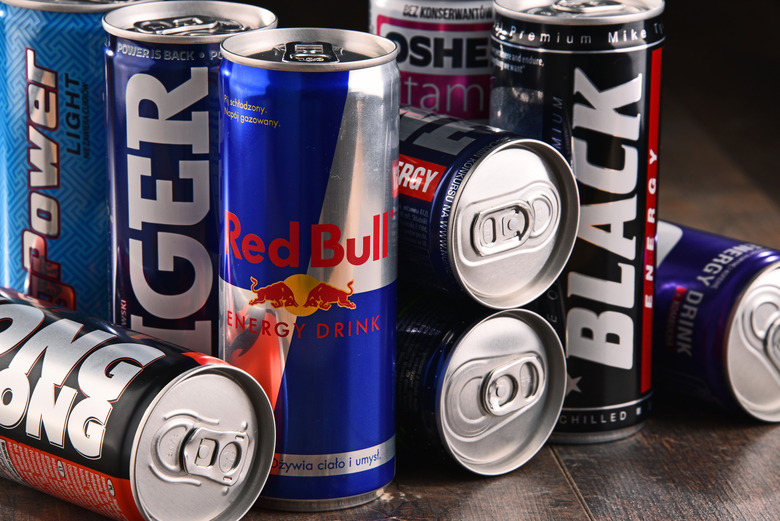
Refrigerating Red Bull is recommended for maintaining its freshness and taste. Storing it in a cool environment helps preserve carbonation and prevents the degradation of its ingredients.
It’s essential to tightly seal the container to avoid exposure to air, and refrigerating any opened cans or bottles can extend the drink’s shelf life.
What happens if you drink frozen Red bull?
Drinking frozen Red Bull or any other frozen carbonated beverage can be unpleasant and may not provide the intended taste experience.
When Red Bull freezes, the water content within the drink solidifies, resulting in a slushy or icy texture. Additionally, the carbonation may be compromised, leading to a flatter taste.
The freezing process can also cause separation of ingredients, affecting the overall consistency. While consuming a partially frozen Red Bull is not harmful to health, it is advisable to let it thaw gradually in the refrigerator to restore its original texture and taste.
How Do You Chill Red Bull?
To chill Red Bull quickly, place the unopened can or bottle in the refrigerator for a few hours. Alternatively, submerge the container in a bucket of ice water for a faster chilling process.
While it’s tempting to use the freezer for rapid chilling, it’s not recommended for carbonated beverages like Red Bull. Freezing can alter the texture and taste, and there’s a risk of the container bursting due to the expansion of liquid during freezing.
Once the Red Bull is sufficiently chilled, give the container a gentle shake or stir to evenly distribute any settled ingredients. This helps restore any separation that may have occurred during the cooling process.
Read: Unbelievable World Record For Drinking Most Red Bull in 3 minutes
Can You Freeze Monster Energy Drinks?
Freezing Monster Energy drink is not recommended due to its composition. Monster typically contains water, caffeine, sugars, and other ingredients.
The sugar content in Monster, like in other energy drinks, lowers the freezing point, making it difficult to achieve a solid freeze. Attempting to freeze Monster may result in a slushy or syrupy consistency instead.
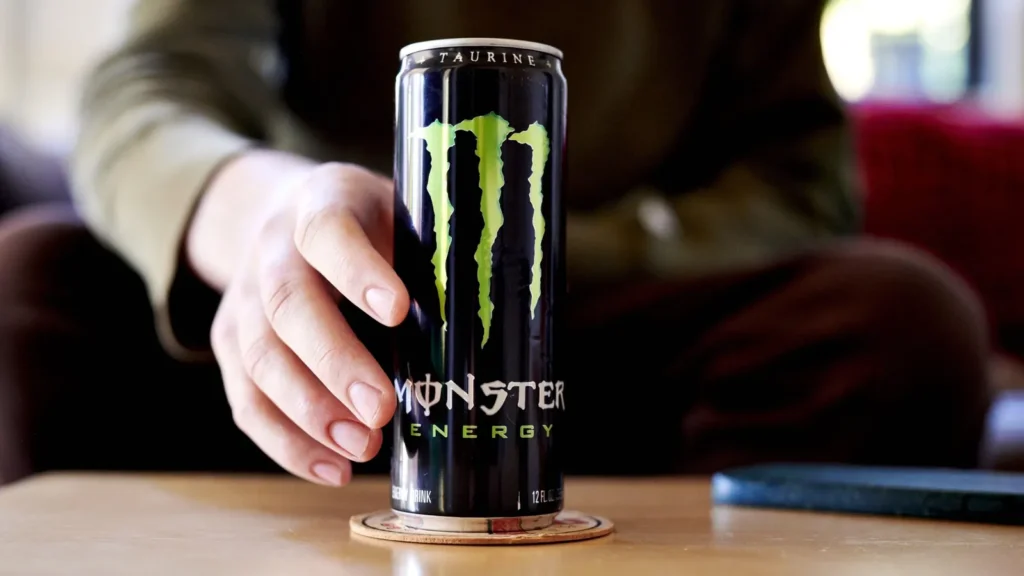
How Long Can a Monster Be in the Freezer?
It’s advisable not to leave Monster Energy drink in the freezer for an extended period. While short periods of exposure may not cause immediate harm, extended freezing can alter the texture and flavor of the beverage. For optimal taste and quality, store Monster in a cool environment like a refrigerator.
Will a Monster Energy Drink Explode in the Freezer?
There is a risk of a Monster Energy drink exploding in the freezer, especially if left for an extended period. The pressure from the expansion of liquid during freezing can lead to container rupture. To prevent potential hazards, avoid extended periods of freezing.
Can You Put Monster Energy in the Fridge?
Yes, refrigerating Monster Energy is recommended. Storing it in the fridge helps maintain its freshness, taste, and overall quality. Ensure the container is tightly sealed to prevent exposure to air, preserving carbonation and flavor. Refrigeration after opening can also extend the beverage’s shelf life.
So, How to Store Energy Drinks Properly?
To store energy drinks properly and maintain their quality, follow these guidelines:
Cool, Not Freezing
Store energy drinks in a cool environment, ideally in a refrigerator. Avoid freezing them, as the sugar content can alter the beverage’s texture and compromise its taste.
Avoid Sunlight and Heat
Keep energy drinks away from direct sunlight and high temperatures. Exposure to heat can affect the drink’s flavor and may lead to a decrease in overall quality.
Sealed Containers
Ensure that the containers, whether cans or bottles, are tightly sealed to prevent exposure to air. This helps retain the carbonation and freshness of the beverage.
Check Expiry Dates
Pay attention to the expiration dates on the packaging. Consuming energy drinks past their expiration date may not only compromise taste but could also affect the potency of the active ingredients.
Refrigerate After Opening
If you’ve opened a can or bottle of an energy drink and haven’t finished it, refrigerate the remaining portion. This helps slow down the degradation of the beverage and preserves its taste.
Read Storage Instructions
Some energy drinks may come with specific storage instructions. Always check the product label for any recommendations provided by the manufacturer.
Conclusion: What Happens If We Freeze Energy drinks
In conclusion, freezing energy drinks, including popular brands like Red Bull and Monster, poses risks such as container rupture and altered taste and texture. The potential for explosion arises from the expansion of liquid during freezing, particularly due to the presence of sugars and additives.
Avoid freezing energy drinks to maintain both their intended quality and ensure safety. Optimal storage in a cool environment, rather than freezing, is crucial for a satisfying and hazard-free energy drink experience.
Read Expert analysis of Are Celsius Energy Drinks Healthy For You?
FAQS
Could You Freeze Energy Drinks in a Plastic Bottle?
Freezing energy drinks in a plastic bottle is possible but not recommended. The expansion of liquid during freezing may lead to pressure build-up, causing the plastic bottle to deform, crack, or rupture.
Additionally, the altered freezing point of the beverage, influenced by sugars and additives, can result in undesirable changes in texture and taste.
How to Safely Cool a Red Bull Without Using the Freezer.
To cool a Red Bull without using the freezer, place the unopened can or bottle in a refrigerator for a few hours. Alternatively, submerge the container in an ice bucket for faster chilling. Avoid rapid methods like the freezer, as it may affect the beverage’s quality, and never microwave carbonated drinks.
Do Energy Drinks Go Bad in the Fridge?
Energy drinks generally have a longer shelf life when stored in the fridge. The cold temperature slows down the degradation process, preserving the beverage’s freshness, taste, and carbonation.
However, it’s essential to check the expiration date and adhere to storage guidelines provided by the manufacturer.
Is Red Bull Good Over Ice?
Yes, Red Bull can be enjoyed over ice. Pouring Red Bull over ice can enhance the drinking experience by providing a crisp and refreshing taste. The cold temperature from the ice complements the energy drink’s flavors and maintains carbonation.
How Long Can a Can of Soda Be in the Freezer Before It Explodes?
Leaving a can of soda in the freezer for too long poses a risk of explosion. While there isn’t an exact timeframe, it’s advisable not to exceed a few hours.
The expansion of liquid during freezing can lead to pressure build-up, potentially causing the can to rupture or explode. It’s crucial to monitor the duration to prevent safety hazards and avoid alterations in the soda’s taste and texture.


